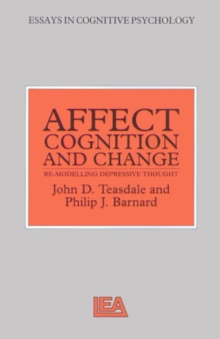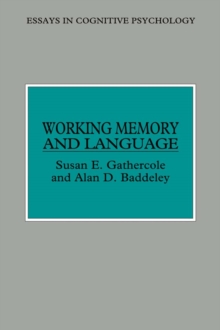
Anxiety : The Cognitive Perspective PDF
by Michael W. Eysenck
Part of the Essays in Cognitive Psychology series
Description
Theorists are increasingly arguing that it is fruitful to approach anxiety from the cognitive perspective, and the empirical evidence supports that contention.
The cognitive perspective is also adopted in this book, but the approach represents a development and extension of earlier ones.
For example, most previous theories and research have been based on anxiety either in clinical or in normal groups.
In contrast, one of the central themes of this book is that there are great advantages to be gained from a joint consideration of clinical and normal anxiety. Another theme of this book is that it is of major importance to establish whether or not there is a cognitive vulnerability factor which is associated with at least some forms of clinical anxiety.
It is argued (with supporting evidence) that there is a latent cognitive vulnerability factor for generalized anxiety disorder which manifests itself under stressful conditions.
This vulnerability factor is characterized by hypervigilance, and is found predominantly in normals high in the personality dimension of trait anxiety. The scope of the book extends to the effects of anxiety on performance and to the phenomenon of worry, which is regarded as the cognitive component of anxiety.
In both cases, a new theoretical framework is presented. Correction notice: In chapter 4, on pages 70-71, Christos Halkiopoulos should have been credited for his role as the inventor of the Dot Probe Paradigm and for the design and execution of the experiment discussed in Eysenck, M.
W. (1991 a). Trait anxiety and cognition. In C. D. Spielberger, I. G. Sarason, Z. Kulczar, and J. Van Heck (Eds.), Stress and Emotion, Vol. 14. London: Hemisphere.
Information
-
Download - Immediately Available
- Format:PDF
- Pages:192 pages
- Publisher:Taylor & Francis Ltd
- Publication Date:24/05/2013
- Category:
- ISBN:9781134831180
Other Formats
- Hardback from £185.00
- Paperback / softback from £53.99
- EPUB from £48.59
Information
-
Download - Immediately Available
- Format:PDF
- Pages:192 pages
- Publisher:Taylor & Francis Ltd
- Publication Date:24/05/2013
- Category:
- ISBN:9781134831180










